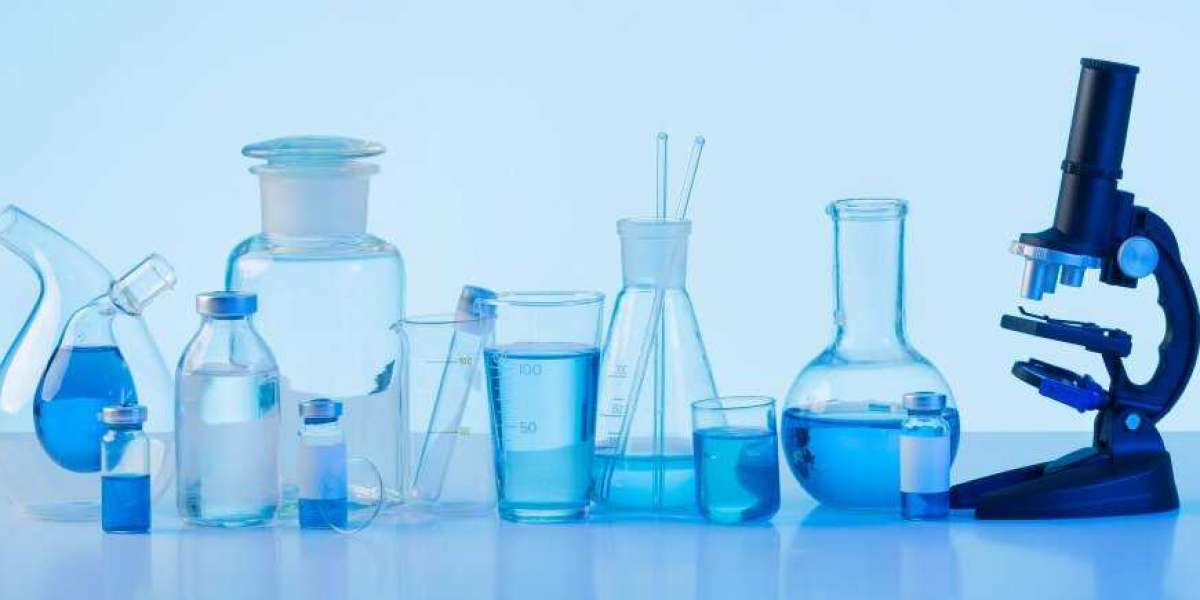Scientific advancements in chemistry and biology rely heavily on precision, accuracy, and efficiency. As technology evolves, laboratories worldwide are integrating cutting-edge equipment to enhance research quality and streamline experiments. Advanced science lab equipment not only improves data reliability but also accelerates the discovery of new materials, medicines, and biological processes.
This blog explores the latest technological innovations in chemistry and biology labs, their impact on research, and the essential tools that are reshaping modern science.
1. The Role of Advanced Lab Equipment in Chemistry and Biology
Chemistry and biology experiments demand precision and consistency. Advanced lab equipment enhances:
- Accuracy: Ensures precise measurements and reproducible results
- Efficiency: Reduces human error and speeds up data collection
- Innovation: Enables groundbreaking research and new discoveries
- Safety: Minimizes exposure to hazardous substances
The integration of high-tech instruments allows scientists to explore complex reactions and biological processes with unprecedented detail.
2. Cutting-Edge Equipment Transforming Chemistry Labs
Modern chemistry labs require specialized tools for synthesis, analysis, and material testing. Here are some of the most transformative instruments:
2.1 High-Performance Liquid Chromatography (HPLC)
- Separates and analyzes compounds in complex mixtures
- Widely used in pharmaceuticals, food safety, and environmental science
- Enhances accuracy in chemical composition analysis
2.2 Mass Spectrometry (MS)
- Identifies molecular structures with extreme precision
- Essential for drug development and forensic analysis
- Integrates with chromatography for comprehensive analysis
2.3 Nuclear Magnetic Resonance (NMR) Spectroscopy
- Provides detailed molecular structure information
- Used in organic chemistry and drug research
- Offers non-destructive sample analysis
2.4 Automated Titrators
- Increases accuracy in acid-base and redox titrations
- Reduces manual errors in chemical quantification
- Saves time in industrial and academic research
2.5 Spectrophotometers
- Measures the absorption and transmission of light in chemical compounds
- Used in DNA, protein, and material analysis
- Essential for colorimetry and photometric assays
With these advanced instruments, chemistry labs can conduct faster and more reliable experiments, leading to significant scientific breakthroughs.
3. Cutting-Edge Equipment Transforming Biology Labs
Biology research has seen remarkable advancements with the introduction of sophisticated lab equipment. These tools help scientists explore molecular interactions, genetics, and cellular processes.
3.1 Polymerase Chain Reaction (PCR) Machines
- Amplifies DNA for genetic and medical research
- Essential for forensic science, disease diagnostics, and genetic engineering
- Real-time PCR (qPCR) enables quantification of gene expression
3.2 Flow Cytometers
- Analyzes cell populations in blood, tissues, and cultures
- Detects proteins and genetic markers at a single-cell level
- Used in immunology, cancer research, and microbiology
3.3 Next-Generation Sequencing (NGS) Systems
- Rapidly deciphers entire genomes
- Revolutionizes medical research, personalized medicine, and evolutionary biology
- Provides high-throughput data for complex genetic studies
3.4 CRISPR Gene-Editing Technology
- Enables precise modification of DNA sequences
- Used in genetic therapy, agriculture, and synthetic biology
- Revolutionizes treatments for inherited diseases
3.5 Biosafety Cabinets and CO₂ Incubators
- Ensure sterile environments for cell cultures
- Maintain controlled conditions for biological research
- Essential for vaccine development and microbiology
These technological advancements enable biologists to conduct experiments with higher precision, leading to major developments in medicine and environmental science.
4. The Future of Science Labs: AI and Automation
The integration of artificial intelligence (AI) and automation is further revolutionizing lab research.
4.1 AI-Driven Data Analysis
- Enhances accuracy in complex calculations
- Predicts outcomes based on existing research
- Assists in drug discovery and genomics
4.2 Robotic Lab Assistants
- Automate repetitive tasks like pipetting and sample preparation
- Reduce human error in high-throughput experiments
- Allow researchers to focus on data interpretation and innovation
4.3 Internet of Things (IoT) in Labs
- Enables remote monitoring of lab equipment
- Provides real-time data analysis and equipment diagnostics
- Enhances lab efficiency and reduces downtime
With AI and automation, science labs are becoming smarter, faster, and more efficient.
5. Choosing the Right Advanced Lab Equipment
When upgrading or setting up a modern lab, consider these factors:
- Research Requirements: Select equipment suited to your field and experimental needs
- Precision and Accuracy: Opt for instruments with high sensitivity and reliability
- Budget and Cost-Effectiveness: Balance advanced features with affordability
- Ease of Use: Ensure researchers are trained to operate complex tools
- Supplier Reliability: Choose reputable manufacturers with excellent customer support
Investing in the right technology ensures long-term success in scientific research.
Conclusion: The Future of Scientific Discovery with Advanced Lab Equipment
Advanced science lab equipment is transforming experiments in chemistry and biology, making research more accurate, efficient, and innovative. From high-tech spectroscopy tools to AI-driven automation, modern laboratories are at the forefront of groundbreaking discoveries.
By integrating state-of-the-art technology, researchers can push the boundaries of science, leading to new medicines, environmental solutions, and deeper insights into the natural world.







